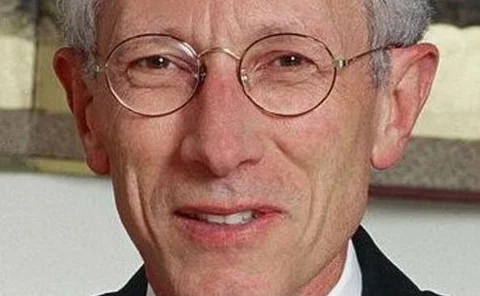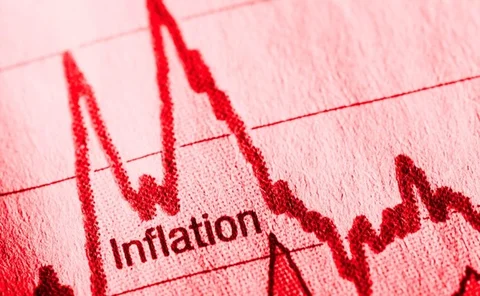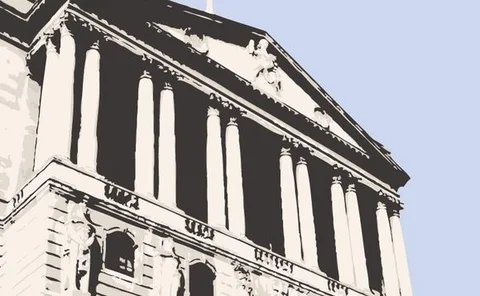Economics
More research needed on exchange rate pass-through, ECB article says
Research on effects of different shocks on inflation “still in an incipient phase”
Riksbank paper shows importance of modelling bank costs
Models should not assume financial intermediation is free, authors say, showing banks can reduce aggregate welfare in some cases
Oil price rises and US GDP growth have ‘complex relationship’ – paper
Paper studies interaction of oil price and economic growth in US from 1875 to 2016
Hedging demand can cause covered interest parity violations – BIS paper
US dollar forward hedging demand can cause covered interest parity to fail even when markets are calm, authors say, helping explain this post-2012 anomaly
AnaCredit: banking with (pretty) big data
The supranational credit database in Europe will help policy-makers and banks assess cross-border risk when it goes live in 2018, writes Aurel Schubert, director-general of the European Central Bank’s statistics department
Lagarde welcomes ‘major policy shift’ in Saudi Arabia
IMF managing director says efforts to reduce reliance on oil are “very welcome”, although Gulf countries more generally need to continue their fiscal adjustment
Commodity prices create ‘strong pressure’ to lower interest rates – paper
Policy response to commodity price fluctuations has been stronger in the US, paper finds; commodity price shocks follow two cycles, with the most recent having impacts on policy rates
Sponsored forum: Evaluating big data capabilities in central banking
Central Banking convened a panel of experts to discuss the big questions about big data, how and where it can add value to central banking in the near term, and balancing the pros against the cons
Bundesbank paper models spillover effects of risk shocks in financial crisis
Paper finds spillover effects of general risk are stronger than spillovers in response to bailouts
Blanchard and Acalin warn of FDI measurement problems
Measured foreign direct investment is not as long term as generally thought, often reflecting transient capital flows and responding to US monetary policy, economists find
Bundesbank paper looks at financial shocks’ impact on inflation
Shocks that cause output and inflation to diverge can worsen trade-offs for central banks, paper says
Pressure in the Danish labour market becoming ‘more evident’
All spare resources in the labour market have already been used, report says; employment has risen by 105,000 people from Q4 2012 to Q2 2016
Output gap in euro area is much larger than official estimates – paper
Official estimates predict output gap 3–4% less negative than author’s results; current models do not “adequately capture” inflation developments
Fischer notes ‘considerable uncertainty’ around longer-run federal rate
Fed vice-chairman cites 2003 paper by Laubach and Williams
Evaluating big data capabilities in central banking
Central Banking convened a panel of experts to discuss how big data can add value to central banking in the near term, the need for good governance, and balancing the pros against the cons
UK inflation jump to 1% is just ‘tip of the iceberg’
Latest inflation data shows leap from 0.6% in August to 1% in September; former MPC member Sentance says this is just tip of the iceberg
Rand volatility not driven by South African economic ‘surprises’ – IMF paper
IMF working paper finds that surprises in commodity prices, domestic politics and US economics impact the volatility of the South African rand rather than economic surprises in South Africa or China
Fed might stimulate labour market with ‘high pressure’ economy
Fed president floats idea of dealing with weak labour markets by “high-pressure” economy; Boston Fed’s Rosengren points to key ‘puzzles’ in data on US economy
Bank of Spain paper explores links between fiscal consolidation and private deleveraging
Larger and faster fiscal consolidations have greater impact on output, authors argue
ECB’s Mersch: central banks have failed to correctly assess growth potential
Central banks were “over-reliant on pro-cyclical forecasts” before the financial crisis, ECB board member says; repeats call for fiscal stimulus and structural reform
No ‘insidious’ German plan for EMU competitive advantage, says Issing
Otmar Issing says Germany didn't even have 'the economic intelligence' to design such a plan; country suffered years of high unemployment as others such as Italy failed to capitalise on price stability
Otmar Issing on why the euro ‘house of cards’ is set to collapse
Euro architect tells Chris Jeffery that muddling from one crisis to another cannot go on endlessly. Politicians need to admit “there is no likelihood” of political union to give EMU rules a chance
Belgian paper studies work of pioneer of regional economics
Robert Triffin was the “architect” of the European Payments Union
BoE paper tackles ‘sectoral co-movement puzzle’
Adding labour market frictions and habit formation helps to solve the problem of models implying a monetary contraction produces little response in output






















